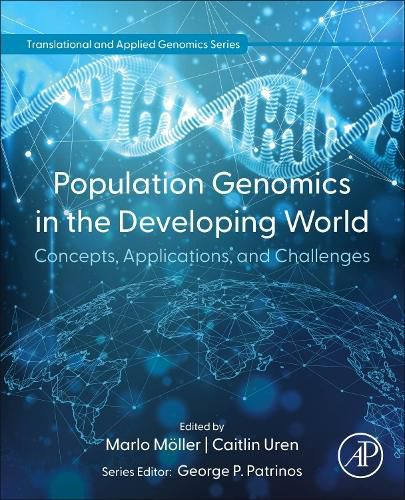Readings Newsletter
Become a Readings Member to make your shopping experience even easier.
Sign in or sign up for free!
You’re not far away from qualifying for FREE standard shipping within Australia
You’ve qualified for FREE standard shipping within Australia
The cart is loading…






Population Genomics in the Developing World: Concepts, Applications, and Challenges, a new volume in the Translational and Applied Genomics series, provides a comprehensive, up-to-date summary of the field of population genomics in developing countries. This book equips students, researchers, and clinicians with the practical skills and approaches necessary to face the unique challenges and opportunities of practicing population genomics in developing countries. Following a brief foundational overview, more than a dozen authors working in developing nations share applied case studies from the field, including rationale, methods, analysis, and outcomes to reinforce understanding. Key themes across the country-specific chapters include efficient genetic data generation and effective computational and statistical tools to analyze population-level data. This book then discusses clinical interpretation of these data, from direct-to-consumer ancestry testing to translational and applied precision medicine. A final chapter considers the ethical aspects of conducting genomic research in developing countries.
$9.00 standard shipping within Australia
FREE standard shipping within Australia for orders over $100.00
Express & International shipping calculated at checkout
Population Genomics in the Developing World: Concepts, Applications, and Challenges, a new volume in the Translational and Applied Genomics series, provides a comprehensive, up-to-date summary of the field of population genomics in developing countries. This book equips students, researchers, and clinicians with the practical skills and approaches necessary to face the unique challenges and opportunities of practicing population genomics in developing countries. Following a brief foundational overview, more than a dozen authors working in developing nations share applied case studies from the field, including rationale, methods, analysis, and outcomes to reinforce understanding. Key themes across the country-specific chapters include efficient genetic data generation and effective computational and statistical tools to analyze population-level data. This book then discusses clinical interpretation of these data, from direct-to-consumer ancestry testing to translational and applied precision medicine. A final chapter considers the ethical aspects of conducting genomic research in developing countries.